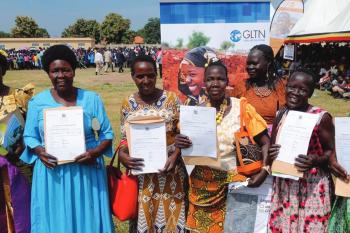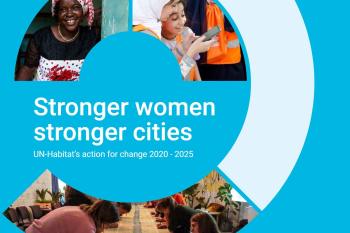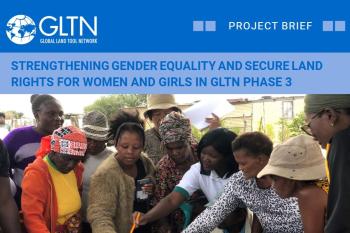
Read More
Gender Strategy for Land-at-Scale Uganda
Women’s Land Rights (WLRs) are fundamental human rights, foundational to gender equality and women’s dignity and instrumental in improving food security, effective climate action, poverty eradicati

The realization of the right to housing and property restitution for refugees and internally displaced persons is essential for achieving durable peace and upholding human rights. Since the approval of the Principles on Housing and Property Restitution for Refugees and Displaced Persons (the Pinheiro Principles) in 2005, the Middle East and North Africa region has witnessed both promising practices and significant challenges in realizing these rights.
The handbook Housing and Property Restitution for Refugees and Displaced Persons. Implementing the Pinheiro Principles in the Middle East and North Africa is designed to provide practical guidance to national and international actors, institutions, and organizations working to protect the housing, land, and property rights of refugees and displaced persons. It contributes to achieving sustainable solutions by applying the Pinheiro Principles to displacement situations across the Middle East and North Africa region.
This regional edition is an adaptation of the global 2007 Handbook and it takes stock of key tools developed since its publication, as well as efforts to apply the Pinheiro Principles in securing restitution rights, focusing on the unique challenges and opportunities for refugees and displaced persons in the MENA region. This Handbook also reflects the evolution of global policies on displacement, incorporating new approaches advocating for closer coordination and continuity between humanitarian, development, and peacebuilding efforts.
Recognizing that many displacement situations become protracted, the Handbook emphasizes solutions beyond immediate humanitarian aid, acknowledging that some displaced individuals and communities may opt for durable solutions other than voluntary return and that restitution is a key element, but it must be accompanied by measures that address the underlying structural issues contributing to conflict and displacement.
This Handbook is intended for professionals working in intergovernmental organizations, international and national non-governmental organizations (NGOs), and government institutions engaged in humanitarian aid, post-conflict recovery, reconstruction, and development related to refugees and displaced persons.

Women’s Land Rights (WLRs) are fundamental human rights, foundational to gender equality and women’s dignity and instrumental in improving food security, effective climate action, poverty eradicati

This publication presents a summary of UN-Habitat’s gender equality impact over the past five years, in line with the Beijing reporting cycle.

GLTN’s institutional commitment to gender equality and secure land rights for women and girls has been at the core of its work since inception in 2006.